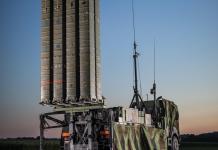The recent India-Nepal Joint Commission failed to make any significant progress on issues facing the South Asian neighbours according to experts. S. Jaishankar, the Indian foreign minister’s meeting in Kathmandu, which was aimed to resolve India-Nepal bilateral issues including trade, transit, water sharing and economic cooperation did not go as well as planned.
Indian Airbase at Andaman & Nicobar Islands To Keep a ‘Hawk-Eye’ on Chinese Warships
Jaishankar called upon President Bidhya Devi Bhandari and Prime Minister K.P. Sharma Oli and held meetings with other top politicians. The ministerial-level meeting was expected to address longstanding bilateral issues such as monsoon flooding along the open border, which displaced hundreds of people this year, and slow progress with infrastructure projects that India has vowed to carry out in Nepal.
“The Indian minister hardly spent an hour in the joint meeting, which touched on several issues but failed to find any common ground,” said Santosh Ghimire, a Nepali journalist who covers foreign affairs for the Republica newspaper. Ghimire said the Indian side not only lacked preparation but also seemed preoccupied to garner support for Jammu and Kashmir.
China Mocks India as “Slow and Inept” As Delhi Joins US, Australia, Japan for the “Quad
Jaishankar’s second leg of his South Asia trip was meant to garner support for the Indian government’s move, he added. The agendas of the meeting included the revision of the Peace and Friendship Treaty and various infrastructure projects under Indian funding.
“Both sides agreed to an early conclusion of the review of treaties and agreements related to the trade, transit and rail services,” Nepal’s Ministry of Foreign Affairs said Wednesday in a statement.
“They also agreed to continue upgradation and maintenance of infrastructure and logistic facilities at major border crossing points for facilitating trade and transit between the two countries,” said the statement. But the 2015 blockade still cast a shadow over the two countries’ relations.
In Nepal, many see Jaishankar, who was reportedly picked by Indian Prime Minister Narendra Modi for his diplomatic acumen, as an architect of the blockade. India imposed an economic embargo on Nepal in the summer of 2015 following the promulgation of the country’s new constitution. New Delhi was reportedly miffed at Nepali politicians for not addressing its concerns over the constitution. The economic embargo dealt a huge blow to Nepal, a landlocked country dependent on India for trade and transit.




